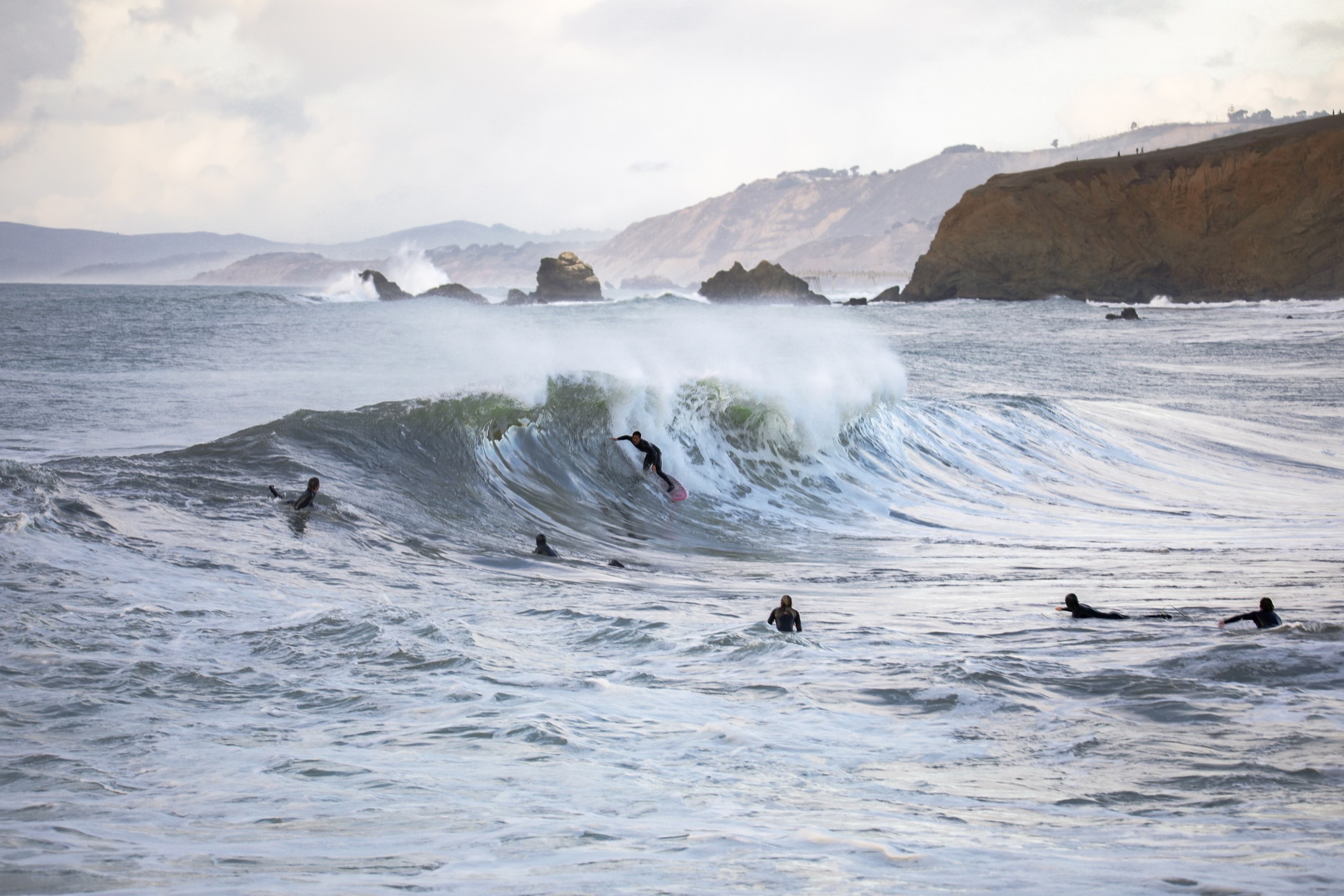
Like all coastal towns in California, the City of Pacifica faces the challenging reality of rising sea levels and coastal erosion. Politics surrounding sea level rise in Pacifica are particularly heated because realtor groups and coastal property owners have been loudly opposing the City’s inclusion of ‘managed retreat’ and promoting development in coastal hazard zones - which puts more people at risk and is economically damaging to the City over the long term.
Managed retreat, or the relocation of infrastructure away from the coast, is widely acknowledged in California as one of many sea level rise adaptation strategies that will be needed to save certain public beaches. When the City attempted to acknowledge managed retreat as a strategy that should be part of a menu of adaptation options considered in Pacifica, fears around what this could mean for private property values caused all sorts of political opposition to the planning process; so much so that the controversy became a feature on a two part series of This American Life.

The City is now proposing that its official sea level rise plan — its Local Coastal Program — expressly prohibits managed retreat and greatly expands the use of seawalls. By changing the definition of ‘existing development’ and several policies, the City’s plan will open the door to just about anyone who wants a seawall. The plan ignores the science and the impacts we are already seeing, and prioritizes a few individual property owners over the other residents of Pacifica and the thousands of people, both locals and visitors alike, who use the beach every year.
Cumulatively, the City’s current proposed adaptation policies in its LCP Update would result in full armoring of Pacifica’s coast by unlawfully expanding the number and types of infrastructure entitled to shoreline armoring. The California Coastal Commission must first certify the plan. This is an important step in making sure public resources and the California Coastal Act are protected in the plan. The Commission has offered suggested modifications to the City’s plan to consider before the certification hearing in 2024.
In response to the Commission's suggestions, the City is now proposing alternatives that include a "Special Adaptation Area" that would allow neighborhood scale seawalls to exist in perpetuity. Not only is this inconsistent with state law, it could condemn beaches at Rockaway and Sharp Park to drown as seas rise. The City’s proposed mitigation is NOT adequate. We must not sacrifice our beaches at Rockaway and Sharp Park for promises of “improved amenities” - what good are amenities if there is no beach left to access?
We want to see beaches in Pacifica protected over the next few decades, which is why we strongly support the California Coastal Commission’s suggested modifications to simply remove the prohibition of managed retreat and remove policies that overly rely on seawalls.
How to Get Involved
Pacifica is holding a Community Roundtable on Tuesday, December 5 at 5:30 pm at the Community Center to discuss the Coastal Commission's suggested modifications. Please join and express your support for Coastal Commission staff’s suggested modifications. The city NEEDS to hear from you - the beachgoer! (They hear plenty from those working to protect private property with seawalls as it is!) If we don’t speak up for the coast, who will?
Register here to attend the Community Roundtable - featuring a catered dinner!
See the full meeting details here.
Can’t make it? Take 5 minutes to sign our action alert.
Why You Should Care
As Rosanna Xia describes in her new book, California Against the Sea: Visions for our Vanishing Coastline, we are at a crossroads where we can choose to move back with the coast, allowing the beach to naturally adapt or we can fight it and try to hold the line. We can have a natural, dynamic coast or we can allow it to drown by fixing the back of the beach with seawalls.
When we do not plan to move, we plan to stay. The state of California has known about sea level rise for a long time, and the Coastal Act seeks to prevent private structures built after 1976 from armoring with seawalls to discourage the building of new property in harm’s way, where it will end up closer and closer to the edge of public beaches and cliffs as a result of erosion from more frequent and severe storms. This law also acknowledges that seawalls don’t just protect private property in unsafe places, they actively harm the public trust by eroding our beaches.
Having managed retreat in the City’s tool box of solutions allows the option to phase out development in high risk areas over a long time horizon and it benefits the City in terms of economic impact. It allows the removal of endangered public infrastructure where necessary, feasible, and legal, rather than waiting until buildings are literally falling off the bluff.
Beach Boulevard is a great example of where managed retreat could be highly beneficial: It’s a non-essential roadway where armoring it in-place erodes (and quickly sacrifices) the beach and access to it in favor of the fortification of a concrete promenade. Managed retreat of the boulevard would instead offer an opportunity to work with nature and prioritize the safety and well-being of residents while maintaining the beach.
As seas rise and storm surge increases in intensity, the sea will eventually reclaim the shoreline. Retreat will happen one way or the other - the question is whether or not we will have a planned retreat or an unplanned one. If our only response to rising seas is to armor the coastline, we will lose all of our beaches in the next few decades.
This is why we support Coastal Commission staff’s suggested modifications to remove the prohibition on managed retreat and the policies that promote an over reliance on seawalls. If we don’t there will eventually be no beach or coast left to visit - like some parts of the City are already experiencing.
